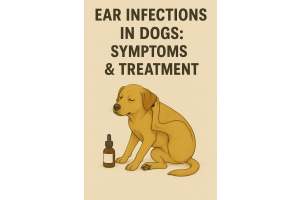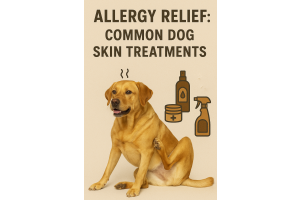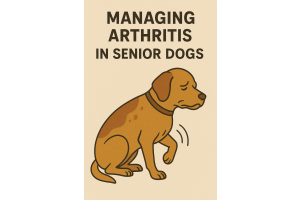Treating Skin Allergies in Cats

Cats are known for their beautiful, soft coats and meticulous grooming habits. But what happens when your cat starts scratching excessively, develops bald patches, or shows skin irritation? Skin allergies in cats are surprisingly common and can cause significant discomfort if left untreated.
Understanding how to recognize, diagnose, and treat skin allergies is crucial for every cat parent. In this article, we'll explore the causes, signs, and treatment options for skin allergies in cats, and explain how Cessna Lifeline Veterinary Hospital can help your feline friend live itch-free and happy.
What Causes Skin Allergies in Cats?
Skin allergies, medically known as allergic dermatitis, occur when your cat’s immune system overreacts to certain substances. Here are the most common causes:
1. Flea Allergy Dermatitis (FAD)
Flea bites are one of the most frequent triggers of skin allergies in cats. Even a single flea bite can cause an intense reaction, leading to excessive scratching and skin damage.
2. Food Allergies
Some cats develop hypersensitivity to certain ingredients in their diet, such as chicken, beef, dairy, or fish. Food allergies often manifest as itchy skin rather than digestive issues.
3. Environmental Allergens (Atopic Dermatitis)
Just like humans, cats can be allergic to pollen, dust mites, mold, or even certain cleaning products. This type of allergy can cause seasonal or year-round itching and skin inflammation.
4. Contact Allergies
Less commonly, cats may develop reactions to materials like certain fabrics, shampoos, or chemicals used at home.
Common Signs of Skin Allergies in Cats
Cats are masters at hiding discomfort, but there are specific signs that may indicate a skin allergy:
-
Persistent scratching, licking, or biting at the skin
-
Red or inflamed skin
-
Hair loss, bald patches, or thinning fur
-
Scabs or crusty sores
-
Excessive grooming
-
Ear infections or head shaking
-
Overgrooming specific areas like belly or legs
If you notice these signs, it's essential to consult a veterinarian promptly to prevent further complications.
Diagnosing Skin Allergies
Diagnosing skin allergies can be challenging since the symptoms often overlap with other skin conditions like fungal infections or parasites. At Cessna Lifeline Veterinary Hospital, the diagnosis usually involves:
-
Detailed medical history: Including diet, lifestyle, and any recent environmental changes.
-
Thorough physical examination: Checking for fleas, signs of infection, and skin lesions.
-
Skin tests: Scrapings or cytology to rule out parasites and bacterial or yeast infections.
-
Elimination diet trial: If food allergies are suspected, your cat may be put on a strict diet for 8–12 weeks.
-
Allergy testing: Blood tests or intradermal testing can help identify environmental allergens.
How Are Skin Allergies in Cats Treated?
Effective treatment of skin allergies requires a multi-pronged approach, often combining immediate relief with long-term management.
1. Flea Control
If flea allergy is the cause, strict flea control is crucial. Your veterinarian will recommend safe and effective flea preventives. It’s important to treat all pets in the household and maintain a clean environment.
2. Dietary Management
If food allergies are diagnosed, your vet will suggest an elimination diet followed by a hypoallergenic or novel protein diet tailored to your cat’s needs. It’s essential to avoid feeding any treats or flavored medications not approved by the vet during this period.
3. Medications to Control Itching
Your cat may need medications to relieve severe itching and inflammation, such as:
-
Antihistamines
-
Corticosteroids (short-term use only)
-
Immunosuppressive medications
Your vet at Cessna Lifeline Veterinary Hospital will select the safest and most effective option based on your cat’s condition.
4. Topical Therapies
Medicated shampoos, sprays, or wipes can help soothe the skin and reduce itching. These are particularly useful in managing mild symptoms and maintaining skin health.
5. Allergy Immunotherapy
In some cases, customized allergy shots or drops (immunotherapy) can help desensitize your cat to specific environmental allergens over time. This is a long-term treatment and is usually recommended if other approaches are not sufficient.
Supporting Your Cat at Home
Treatment doesn't stop at the veterinary clinic. You can take several steps at home to support your cat’s recovery:
-
Regular grooming: Brushing helps remove allergens and reduce mats, which can irritate the skin.
-
Allergen control: Use air purifiers, wash bedding frequently, and reduce exposure to pollen and dust.
-
Balanced diet: Feed only veterinarian-approved diets and avoid sudden changes in food.
-
Routine flea prevention: Even indoor cats need year-round flea prevention in Bangalore’s climate.
Why Choose Cessna Lifeline Veterinary Hospital for Cat Skin Allergies?
At Cessna Lifeline Veterinary Hospital, skin health is taken seriously. The experienced veterinary dermatology team offers:
-
Comprehensive allergy diagnostics: Advanced testing to accurately identify the cause of your cat’s itching.
-
Customized treatment plans: Tailored to each cat’s unique needs and sensitivities.
-
Gentle, cat-friendly handling: Designed to reduce stress during exams and treatments.
-
Long-term monitoring and support: Regular check-ups to adjust treatment and ensure continued improvement.
When to See a Veterinarian Immediately
While most allergies develop gradually, some situations require urgent veterinary care:
-
Severe swelling of the face or limbs
-
Difficulty breathing
-
Sudden collapse
-
Uncontrolled bleeding from scratching
If you notice these signs, contact Cessna Lifeline Veterinary Hospital or your nearest emergency veterinary clinic right away.
Preventing Skin Allergies in Cats
While not all allergies can be prevented, some steps can lower the risk:
-
Maintain consistent flea control
-
Keep your cat indoors or limit outdoor exposure
-
Feed a high-quality, balanced diet
-
Use hypoallergenic grooming products
-
Keep your home clean and dust-free
The Importance of Regular Veterinary Visits
Routine wellness visits help detect skin problems early and prevent minor irritations from turning into severe allergies. At each visit, your veterinarian can:
-
Check your cat’s skin and coat condition
-
Review flea and parasite control
-
Evaluate diet and discuss food sensitivities
-
Adjust treatment plans if needed
Final Thoughts
Skin allergies can seriously impact your cat’s comfort and quality of life. Recognizing early signs and seeking prompt veterinary care can make a significant difference.
At Cessna Lifeline Veterinary Hospital, the experienced team is committed to providing comprehensive, compassionate care to help your cat feel their best. From accurate diagnosis to personalized treatment plans, your feline friend will be in good hands.
Don’t let your cat suffer in silence. Schedule a skin health check today and help your beloved pet enjoy a life free from itching and discomfort.






